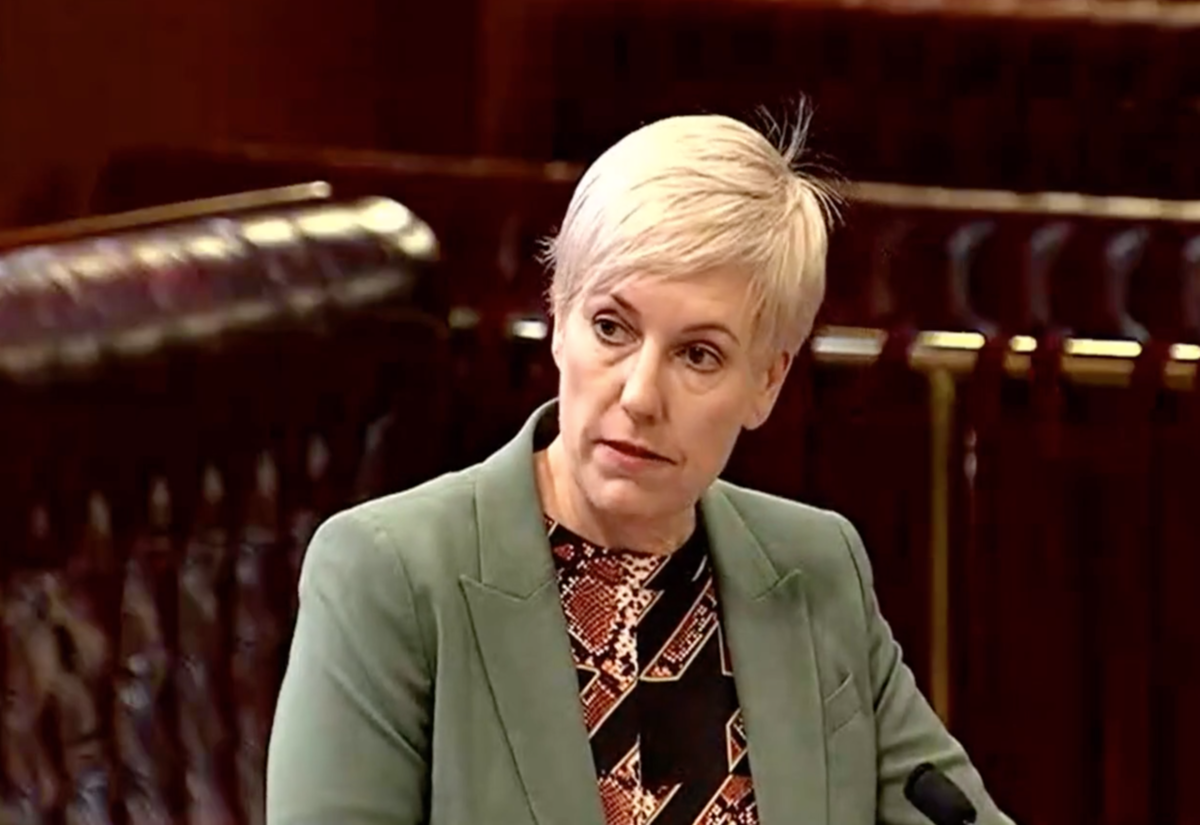What do our drug driving laws mean for medical cannabis patients?
Laura Williams
18 November 2021, 4:17 AM
 Greens MP Cate Faehrmann presented the second reading of the bill in the NSW Legislative Council today, November 17.
Greens MP Cate Faehrmann presented the second reading of the bill in the NSW Legislative Council today, November 17. A Bill to protect medical cannabis patients from drug driving offences was read today for the second time in the NSW Legislative Council but there is no indication yet as to whether it is likely to succeed.
The Road Transport Amendment Bill (Medicinal Cannabis Exemptions from Offences) 2021, was introduced by Greens MP Cate Faehrmann, designed to end the prosecution of medicinal cannabis patients by giving them a defense if caught driving with THC (a psychoactive component of cannabis) in their system through a roadside drug test.
“This bill would simply provide the same medical defense that is already given to morphine patients. Yet medicinal cannabis is far safer than morphine on and off the road but medicinal cannabis patients who test positive face damaging drug driving charges,” Ms Faehrmann said.
Included in the Bill are several caveats designed to prevent the abuse of these potential allowances, including proof that the cannabis was legally obtained by prescription for medicinal purposes, and that it is the only present substance in their system when tested.
The Bill doesn’t provide a defense for those with a prescription who are clearly impaired by cannabis use when driving.
The use of cannabis for medicinal purpose remains controversial, despite being legalised in Australia in 2016. The only legal way of obtaining cannabis is through a pharmacy with a doctor's prescription, where oils, capsules, vaporized and sprays are the approved forms.
Under current laws, those who legally use cannabis are as susceptible to drug driving charges as recreational users of illegal cannabis.
A similar Bill was introduced last year by Greens MP David Shoebridge and was later rejected by NSW Parliament.
“It should have happened when medicinal cannabis was legalised at the federal level in 2016. Instead, medicinal cannabis patients have been discriminated against and forced not to drive because our laws haven’t kept up,” Ms Faehrmann said.
Despite research showing that any impairment of cannabis wears off after 10 hours, patients can test positive 24 hours or more after consuming cannabis and therefore face drug driving charges.
Across the Western Plains shires, traffic offences involving cannabis are some of the highest in the state. In November last year, Walgett saw a dramatic spike in the crime that saw the towns rate rise to 201.6 per 100,000 people. Also bringing up the average for the region is Cobar, with a rate of 42.9. The state average is a significantly lower 10.7 per 100,000 people.
While the data does not indicate what proportion of the current offences are medicinal vs recreational, under current NSW laws drivers can potentially lose their license for up to three months - regardless of the source or type of cannabis use.
In contrast to the NSW Bill, the South Australian government has introduced the first Bill of its kind in Australia, giving state police additional powers to remove drug drivers from SA roads and revoke their license immediately after a positive roadside test.
Potential legislation around drug driving charges have been circulating around state governments as the country catches up with what the 2016 legalisation of cannabis for medical purposes means practically.
Debate on the Bill has been adjourned for five days.